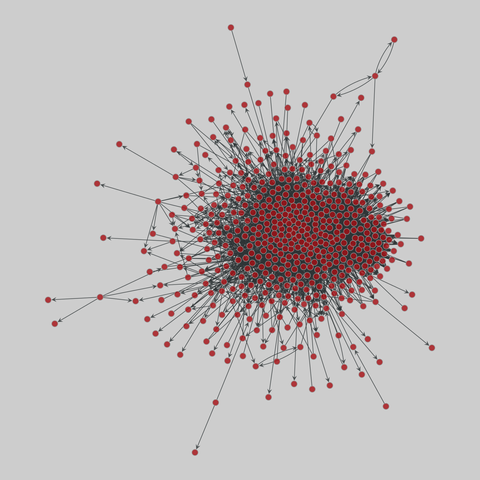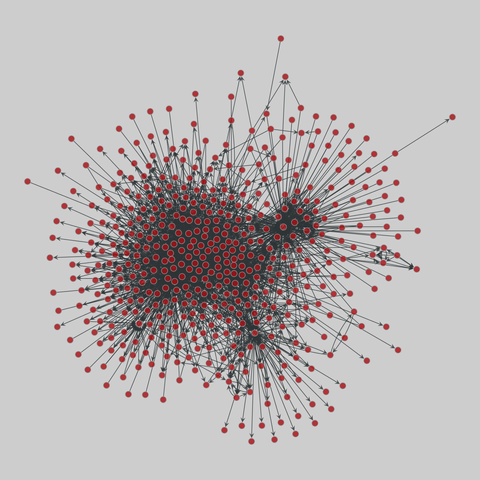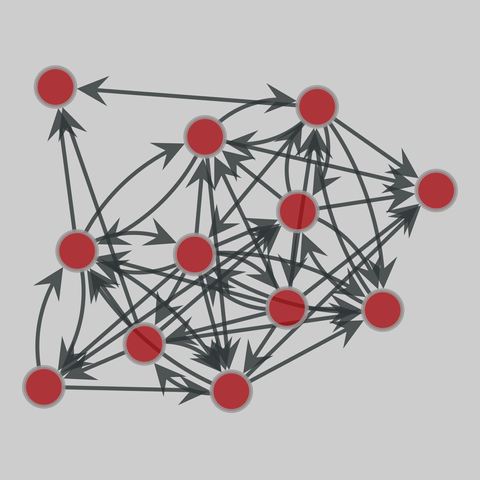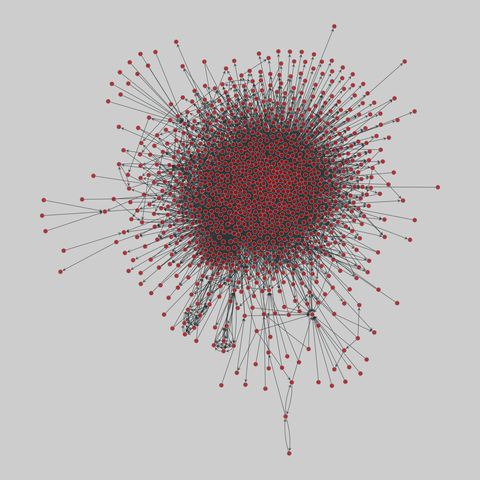2025-07-28 13:06:20
How popular media gets love wrong
Now a bit of background about why I have this "engineered" model of love:
First, I'm a white straight cis man. I've got a few traits that might work against my relationship chances (e.g., neurodivergence; I generally fit pretty well into the "weird geek" stereotype), but as I was recently reminded, it's possible my experience derives more from luck than other factors, and since things are tilted more in my favor than most people on the planet, my advice could be worse than useless if it leads people towards strategies that would only have worked for someone like me. I don't *think* that's the case, but it's worth mentioning explicitly.
When I first started dating my now-wife, we were both in graduate school. I was 26, and had exactly zero dating/romantic experience though that point in my life. In other words, a pretty stereotypical "incel" although I definitely didn't subscribe to incel ideology at all. I felt lonely, and vaguely wanted a romantic relationship (I'm neither aromantic nor asexual), but had never felt socially comfortable enough to pursue one before. I don't drink and dislike most social gatherings like parties or bars; I mostly hung around the fringes of the few college parties I attended, and although I had a reasonable college social life in terms of friends, I didn't really do anything to pursue romance, feeling too awkward to know where to start. I had the beginnings of crushes in both high school and college, but never developed a really strong crush, probably correlated with not putting myself in many social situations outside of close all-male friend gatherings. I never felt remotely comfortable enough to act on any of the proto-crushes I did have. I did watch porn and masturbate, so one motivation for pursuing a relationship was physical intimacy, but loneliness was as much of a motivating factor, and of course the social pressure to date was a factor too, even though I'm quite contrarian.
When I first started dating my now-wife, we were both in graduate school. I was 26, and had exactly zero dating/romantic experience though that point in my life. In other words, a pretty stereotypical "incel" although I definitely didn't subscribe to incel ideology at all. I felt lonely, and vaguely wanted a romantic relationship (I'm neither aromantic nor asexual), but had never felt socially comfortable enough to pursue one before. I don't drink and dislike most social gatherings like parties or bars; I mostly hung around the fringes of the few college parties I attended, and although I had a reasonable college social life in terms of friends, I didn't really do anything to pursue romance, feeling too awkward to know where to start. I had the beginnings of crushes in both high school and college, but never developed a really strong crush, probably correlated with not putting myself in many social situations outside of close all-male friend gatherings. I never felt remotely comfortable enough to act on any of the proto-crushes I did have. I did watch porn and masturbate, so one motivation for pursuing a relationship was physical intimacy, but loneliness was as much of a motivating factor, and of course the social pressure to date was a factor too, even though I'm quite contrarian.
I'm lucky in that I had some mixed-gender social circles already like intramural soccer and a graduate-student housing potluck. Graduate school makes a *lot* more of these social spaces accessible, so I recognize that those not in school of some sort have a harder time of things, especially if like me they don't feel like they fit in in typical adult social spaces like bars.
However, at one point I just decided that my desire for a relationship would need action on my part and so I'd try to build a relationship and see what happened. I worked up my courage and asked one of the people in my potluck if she'd like to go for a hike (pretty much clearly a date but not explicitly one; in retrospect not the best first-date modality in a lot of ways, but it made a little more sense in our setting where we could go for a hike from our front door). To emphasize this point: I was not in love with (or even infatuated with) my now-wife at that point. I made a decision to be open to building a relationship, but didn't follow the typical romance story formula beyond that. Now of course, in real life as opposed to popular media, this isn't anything special. People ask each other out all the time just because they're lonely, and some of those relationships turn out fine (although many do not).
I was lucky in that some aspects of who I am and what I do happened to be naturally comforting to my wife (natural advantage in the "appeal" model of love) but of course there are some aspects of me that annoy my wife, and we negotiate that. In the other direction, there's some things I instantly liked about my wife, and other things that still annoy me. We've figured out how to accept a little, change a little, and overall be happy with each other (though we do still have arguments; it's not like the operation/construction/maintenance of the "love mechanism" is always perfectly smooth). In particular though, I approached the relationship with the attitude of "I want to try to build a relationship with this person," at first just because of my own desires for *any* relationship, and then gradually more and more through my desire to build *this specific* relationship as I enjoyed the rewards of companionship.
So for example, while I think my wife is objectively beautiful, she's also *subjectively* very beautiful *to me* because having decided to build a relationship with her, I actively tried to see her as beautiful, rather than trying to judge whether I wanted a relationship with her based on her beauty. In other words, our relationship is more causative of her beauty-to-me than her beauty-to-me is causative of our relationship. This is the biggest way I think the "engineered" model of love differs from the "fire" and "appeal" models: you can just decide to build love independent of factors we typically think of as engendering love (NOT independent of your partner's willingness to participate, of course), and then all of those things like "thinking your partner is beautiful" can be a result of the relationship you're building. For sure those factors might affect who is willing to try building a relationship with you in the first place, but if more people were willing to jump into relationship building (not necessarily with full commitment from the start) without worrying about those other factors, they might find that those factors can come out of the relationship instead of being prerequisites for it. I think this is the biggest failure of the "appeal" model in particular: yes you *do* need to do things that appeal to your partner, but it's not just "make myself lovable" it's also: is your partner putting in the effort to see the ways that you are beautiful/lovable/etc., or are they just expecting you to become exactly some perfect person they've imagined (and/or been told to desire by society)? The former is perfectly possible, and no less satisfying than the latter.
To cut off my rambling a bit here, I'll just add that in our progress from dating through marriage through staying-married, my wife and I have both talked at times explicitly about commitment, and especially when deciding to get married, I told her that I knew I couldn't live up to the perfect model of a husband that I'd want to be, but that if she wanted to deepen our commitment, I was happy to do that, and so we did. I also rearranged my priorities at that point, deciding that I knew I wanted to prioritize this relationship above things like my career or my research interests, and while I've not always been perfect at that in my little decisions, I've been good at holding to that in my big decisions at least. In the end, *once we had built a somewhat-committed relationship*, we had something that we both recognized was worth more than most other things in life, and that let us commit even more, thus getting even more out of it in the long term. Obviously you can't start the first date with an expectation of life-long commitment, and you need to synchronize your increasing commitment to a relationship so that it doesn't become lopsided, which is hard. But if you take the commitment as an active decision and as the *precursor* to things like infatuation, attraction, etc., you can build up to something that's incredibly strong and rewarding.
I'll follow this up with one more post trying to distill some advice from my ramblings.
#relationships #love
2025-07-31 02:50:43
Weird Greco III 🇬🇷
怪异希腊 III 🇬🇷
📷 Nikon FE
🎞️Ilford FP4 Plus, expired 1994
buy me ☕️ ?/请我喝杯☕️?
#filmphotography
2025-07-31 09:36:11
Maker playing against an invisible Breaker
Dennis Clemens, Fabian Hamann, Mirjana Mikala\v{c}ki, Yannick Mogge, Milo\v{s} Stojakovi\'c
https://arxiv.org/abs/2507.22519 https…
2025-07-29 12:00:04
us_agencies: U.S. government agency websites (2018)
50 networks, one for each U.S. state, representing the web-based links between their associated government agencies websites. A node is an entire agency website and a directed edge (i,j) represents the existence of a hyperlink from any webpage in website i to some webpage in website j. Data was collected with a crawler. Nodes are annotated with the number of webpages per website, website name (related to its government function) and U…
2025-08-26 16:07:40
2025-07-22 00:03:45
Overly academic/distanced ethical discussions
Had a weird interaction with @/brainwane@social.coop just now. I misinterpreted one of their posts quoting someone else and I think the combination of that plus an interaction pattern where I'd assume their stance on something and respond critically to that ended up with me getting blocked. I don't have hard feelings exactly, and this post is only partly about this particular person, but I noticed something interesting by the end of the conversation that had been bothering me. They repeatedly criticized me for assuming what their position was, but never actually stated their position. They didn't say: "I'm bothered you assumed my position was X, it's actually Y." They just said "I'm bothered you assumed my position was X, please don't assume my position!" I get that it's annoying to have people respond to a straw man version of your argument, but when I in response asked some direct questions about what their position was, they gave some non-answers and then blocked me. It's entirely possible it's a coincidence, and they just happened to run out of patience on that iteration, but it makes me take their critique of my interactions a bit less seriously. I suspect that they just didn't want to hear what I was saying, while at the same time they wanted to feel as if they were someone who values public critique and open discussion of tricky issues (if anyone reading this post also followed our interaction and has a different opinion of my behavior, I'd be glad to hear it; it's possible In effectively being an asshole here and it would be useful to hear that if so).
In any case, the fact that at the end of the entire discussion, I'm realizing I still don't actually know their position on whether they think the AI use case in question is worthwhile feels odd. They praised the system on several occasions, albeit noting some drawbacks while doing so. They said that the system was possibly changing their anti-AI stance, but then got mad at me for assuming this meant that they thought this use-case was justified. Maybe they just haven't made up their mind yet but didn't want to say that?
Interestingly, in one of their own blog posts that got linked in the discussion, they discuss a different AI system, and despite listing a bunch of concrete harms, conclude that it's okay to use it. That's fine; I don't think *every* use of AI is wrong on balance, but what bothered me was that their post dismissed a number of real ethical issues by saying essentially "I haven't seen calls for a boycott over this issue, so it's not a reason to stop use." That's an extremely socially conformist version of ethics that doesn't sit well with me. The discussion also ended up linking this post: https://chelseatroy.com/2024/08/28/does-ai-benefit-the-world/ which bothered me in a related way. In it, Troy describes classroom teaching techniques for introducing and helping students explore the ethics of AI, and they seem mostly great. They avoid prescribing any particular correct stance, which is important when teaching given the power relationship, and they help students understand the limitations of their perspectives regarding global impacts, which is great. But the overall conclusion of the post is that "nobody is qualified to really judge global impacts, so we should focus on ways to improve outcomes instead of trying to judge them." This bothers me because we actually do have a responsibility to make decisive ethical judgments despite limitations of our perspectives. If we never commit to any ethical judgment against a technology because we think our perspective is too limited to know the true impacts (which I'll concede it invariably is) then we'll have to accept every technology without objection, limiting ourselves to trying to improve their impacts without opposing them. Given who currently controls most of the resources that go into exploration for new technologies, this stance is too permissive. Perhaps if our objection to a technology was absolute and instantly effective, I'd buy the argument that objecting without a deep global view of the long-term risks is dangerous. As things stand, I think that objecting to the development/use of certain technologies in certain contexts is necessary, and although there's a lot of uncertainly, I expect strongly enough that the overall outcomes of objection will be positive that I think it's a good thing to do.
The deeper point here I guess is that this kind of "things are too complicated, let's have a nuanced discussion where we don't come to any conclusions because we see a lot of unknowns along with definite harms" really bothers me.
2025-08-26 03:00:04
us_agencies: U.S. government agency websites (2018)
50 networks, one for each U.S. state, representing the web-based links between their associated government agencies websites. A node is an entire agency website and a directed edge (i,j) represents the existence of a hyperlink from any webpage in website i to some webpage in website j. Data was collected with a crawler. Nodes are annotated with the number of webpages per website, website name (related to its government function) and U…
2025-08-28 08:41:11
Weak saturation numbers of large complete bipartite graphs
Margarita Akhmejanova, Ilya Vorobyev, Maksim Zhukovskii
https://arxiv.org/abs/2508.19435 https://
2025-07-28 12:00:04
dom: Animal dominance archive (2022)
Animal dominance interaction data published over a century of research. The archive contains 434 agonistic interaction datasets, totaling over 241,000 interactions. A directed edge (i,j) corresponds to an antagonist interaction between i (winner) and j (loser). If a 'weight' edge property map exists, it counts the number of such interactions.
This network has 12 nodes and 52 edges.
Tags: Social, Animal, Weighted
2025-07-23 14:00:04
us_agencies: U.S. government agency websites (2018)
50 networks, one for each U.S. state, representing the web-based links between their associated government agencies websites. A node is an entire agency website and a directed edge (i,j) represents the existence of a hyperlink from any webpage in website i to some webpage in website j. Data was collected with a crawler. Nodes are annotated with the number of webpages per website, website name (related to its government function) and U…










